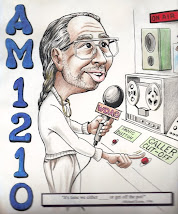Monday, November 24, 2008
What makes a good parent
Friday, November 21, 2008
The latest on the bailout
Democratic leaders say they will return week of Dec. 8 if companies can show they have a 'viable' turnaround plan.
By David Goldman, CNNMoney.com staff writer
Last Updated: November 21, 2008: 5:59 AM ET
NEW YORK (CNNMoney.com) -- With the prospects of an auto bailout this week all but dead, Democratic leaders said Thursday that Congress would return in December to consider extending a $25 billion lifeline for troubled U.S. automakers if the companies devise a "viable" recovery plan.
"Democrats are determined to help auto workers and the auto industry," said Senate Majority Leader Harry Reid, D-Nev. "Unfortunately, the sad reality is that no one has come up with a plan that can pass the House and Senate and get signed by President Bush."
The news comes two days after acrimonious hearings on Capitol Hill in which the CEOs of General Motors (GM, Fortune 500), Ford (F, Fortune 500) and Chrysler said they needed an immediate $25 billion bridge loan to stay afloat through the end of the year.
The Bush administration, as well as many Republican and Democratic lawmakers, have pushed back. Opponents of an auto bailout argue that GM or any other automaker that can't sustain itself should use bankruptcy protection to to become competitive, rather than depend on federal assistance.
Lawmakers said that the auto companies have to prove that they would put bailout money to good use - so they wouldn't come back asking for more in the future.
"It is all about accountability and viability," said House Speaker Nancy Pelosi, D-Calif. "We [need to] see a plan where the auto industry is held accountable. Until they show us the plan, we cannot show them the money."
Executives at General Motors and Ford insist that bankruptcy is not an option. GM CEO Rich Wagner said he doesn't think consumers would buy from bankrupt automakers. Chrysler CEO Robert Nardelli said this week that his company also wants to avoid filing, arguing that buyers would demand cash on delivery and cause an even greater cash crunch. All three companies are burning through cash at a dangerous rate.
Many economists and auto industry analysts say a bankruptcy, even one that allowed one of the companies to reorganize its business and shed expensive labor contracts, could pose serious risk to the economy. Jobs would be lost and factories shut.
Still, it became clear this week that proponents of an immediate $25 billion loan to automakers did not have enough support in Congress, which last month committed $700 billion to prop up the financial sector, even with the automakers in dire financial shape. (Which banks have gotten bailout money so far?)
"We reject those advocating bankruptcy for the industry, but I don't think we saw very much in the hearings of the last few days that gave us the confidence that we can act upon it legislatively," Pelosi said.
Bipartisan agreement reached - but no vote
Following the announcement by Reid and Pelosi, a group of senators said they had reached a compromise agreement to provide a $25 billion bridge loan to the auto industry.
The senators - Michigan Democrats Carl Levin and Deborah Stabenow, Missouri Republican Kit Bond, Ohio Republican George Voinovich and Democrat Sherrod Brown, and Pennsylvania Republican Arlen Specter - had hoped to move quickly on their plan.
But it was clear that their bill would not be put up for a vote anytime soon.
"Obviously, we're disappointed that we're not going to act today," Levin said. "We believe there is at least a reasonable chance that this proposal of ours, if it were put to a vote today, it could get to the 60 votes needed to pass."
The bipartisan group from key auto manufacturing states said their bill could pass because the loan would come from the Energy Independence and Security Act passed in 2007, not the Treasury's $700 billion financial rescue plan that Bush and many Republicans oppose tapping.
"We cannot allow the issue of which source of already appropriated funds will be used for the essential purpose of preventing this economy from sliding into a depression," Levin said. "We cannot allow that issue to prevent us from doing what needs to be done, which is to provide these loans promptly to the domestic automobile industry."
Voinovich said the compromise bill would pass through Congress because it sets up provisions that would require automakers to account for their government loan. It would create a vehicle in which companies can submit a plan for viability, and will only receive a loan if the plan is approved by lawmakers.
"We're asking for a plan that will guarantee viability for the companies and will guarantee the loan will be paid back," he said. "I'm disappointed we're not going to get this done today. This would have been a wonderful Thanksgiving present for millions of Americans."
What happens now
Reid and Pelosi asked the Big Three to submit plans by Dec. 2 that will spell out how they will use the loan in order to become financially stable in the future. Congress will reconvene on Dec. 8 in another lame duck session to vote on the matter.
The automakers said they would comply with the Democrats' request, cheering the chance to state their case again.
"Ford welcomes the opportunity to provide our plan to Congress," the company said in a statement. "We have a great plan that will continue Ford's transformation into a lean, profitable company that delivers the safe, fuel-efficient, high-quality new products that our customers want and value."
Similarly, General Motors said it would be able to show Congress that it had a viable plan. "We will continue to work vigorously with the Congress and the administration during the next few weeks to address their concerns," the company said in a statement.
Chrysler said it is prepared to meet the "accountability and viability" criteria laid out by Congress, and is ready to provide its plans for returning Chrysler to profitability. "Chrysler is changing and will continue to change," the company said in a statement.
What remains to be seen is what any final bailout measure would look like. The Senate could adopt much of the compromise bill, which the Bush administration Thursday said it would support.
"While we need to review the language, this is an agreement the president could support," said Dana Perino, White House press secretary. "We encourage the Congress to pass it as soon as possible."
First Published: November 20, 2008: 2:25 PM ET
Find this article at:
http://money.cnn.com/2008/11/20/news/economy/auto_industry_bailout/?postversion=2008112105
Thursday, November 20, 2008
Here's the latest on the auto industry bail-out that Expressions I has been focusing on
Detroit Automakers' Rescue Stalls in Senate
Thursday , November 20, 2008
WASHINGTON —
A plan to give troubled U.S. automakers billions of dollars in government-backed loans is on life support, leaving the fate of hundreds of thousands of workers and Detroit's once-venerable car companies hanging in the balance.
Senate Majority Leader Harry Reid canceled plans Wednesday for a vote on a bill to carve $25 billion in new auto industry loans out of the $700 billion Wall Street rescue fund. The Bush administration and congressional Republicans have rejected Democrats' plan to dip into that pot of money.
Warning of economic disaster, a bipartisan group of senators from auto industry states are trying to reach a deal on an alternative package. If an agreement can be reached, Reid said the Senate still could vote on it as part of a measure to extend jobless benefits.
But Reid acknowledged that was "not going to be easy."
With all sides sensing doom for a Big Three automaker rescue, the fingerpointing began. White House press secretary Dana Perino said that if Congress "leaves for a two-month vacation without having addressed this important issue ... then the Congress will bear responsibility for anything that happens."
Congressional Democrats countered that the Treasury Department already had the power to grant emergency funds to the automakers, but the Bush administration opposed the approach.
The leaders of General Motors Corp., Ford Motor Co. and Chrysler LLC painted a grim picture of their financial position during two days of congressional hearings, warning that the collapse of the auto industry could lead to the loss of 3 million jobs. Detroit's automakers, hurt by a sharp drop in sales and a nearly-frozen credit market, burned through nearly $18 billion in cash reserves during the last quarter, and GM and Chrysler both said they could collapse in weeks.
"I don't believe we have the luxury of a lot of time," GM CEO Rick Wagoner told a House hearing.
Alan Mulally, the CEO of Ford Motor Co., said the company had sufficient cash reserves to make it through 2009. But United Auto Workers union president Ron Gettelfinger said a bankruptcy could spawn others.
"If there's a Chapter 11 (for) one of the companies, it will drag at least one other with them, if not all of them. And I do not believe Chapter 11 is where it will end. It will go to liquidation," he said ominously.
Automakers ran into more resistance from House lawmakers, who chastised the executives for fighting tougher fuel-efficiency standards in the past and questioned their use of private jets while at the same time seeking government handouts.
"My fear is that you're going to take this money and continue the same stupid decisions you've made for 25 years," said Rep. Michael Capuano, a Massachusetts Democrat.
The stakes are high. The Detroit automakers employ nearly a quarter-million workers, and more than 730,000 other workers produce materials and parts that go into cars. About 1 million on top of that work in dealerships nationwide. If just one of the automakers declared bankruptcy, some estimates put U.S. job losses next year as high as 2.5 million.
The White House and congressional Republicans have called on Democrats to support a Republican plan to divert a $25 billion loan program created by Congress in September -- designed to help the companies develop more fuel-efficient vehicles -- to meet the auto giants' immediate financial needs.
Sen. Carl Levin, a Michigan Democrat, along with Republican Sens. Kit Bond of Missouri and George Voinovich of Ohio are trying to broker an alternative that could provide bridge loans or a guarantee that the fuel-efficiency loan fund ultimately would be replenished. Negotiators were discussing a scaled-down aid package of $5 billion to $8 billion to help the automakers survive through year's end.
But it was unclear whether any progress could be made. Democrats strongly oppose letting the car companies tap into the energy loans for short-term cash-flow needs.
Despite the gridlock in Congress, there could be a contingency plan: a return to Washington in December for another postelection session to try to strike a deal.
House Majority Leader Steny Hoyer noted that Democratic leaders were planning to gather for an economic conference the week of Dec. 8. "That is available," Hoyer said. "The year has not ended."





